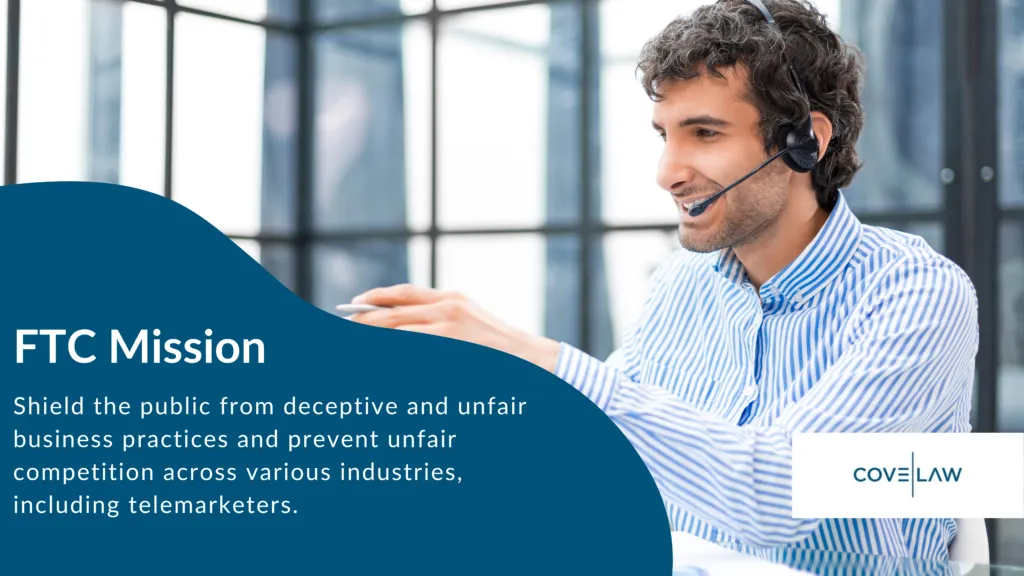
A 10,000-Foot View Of The FTC
The Federal Trade Commission (FTC) protects consumers and promotes fair competition. Established in 1914, the FTC’s mission is to shield the public from deceptive and unfair business practices and to prevent unfair competition across various industries.
A General Overview of the FTC
The FTC has several core responsibilities, primarily focusing on consumer protection and fair competition. These include enforcing consumer protection laws, advocating for consumer rights, educating the public, and conducting research.
The FTC investigates companies and individuals suspected of violating consumer protection laws to prevent deceptive business practices. When it finds evidence of misleading advertising, deceptive financial practices, or other unlawful activities, the FTC may take legal action to stop the conduct. Through such enforcement, the FTC aims to deter companies from attempting to mislead the public.
Another key role of the FTC is consumer education. It creates practical, easy-to-understand resources for both consumers and businesses. The FTC also influences consumer protection policy by sharing research and recommendations with state and federal legislators, U.S. and international agencies, and other organizations. This information helps shape policies that impact consumers in the United States and globally.
The FTC’s Relationship with Telemarketers
Although the Federal Communications Commission (FCC) administers the Telephone Consumer Protection Act (TCPA) and the FTC administers the Telemarketing Sales Rule (TSR), in many ways these laws and the work of these agencies overlap.
Regardless of the technology they use or where they are located, telemarketers must always comply with the TSR when they contact U.S. consumers.
The TSR requires telemarketers and sellers to provide “clear and conspicuous” disclosures about any products or services being promoted. Before a consumer agrees to a purchase, the telemarketer must disclose all essential details, such as the total cost, the nature of the product or service, and any terms and conditions. Sellers and telemarketers must also give these disclosures verbally or in writing (and they must be in a form that is easily understood). Failure to do so is deceptive, subjecting the telemarketer or seller to significant penalties of $51,744 per violation.
The TSR also regulates the National Do Not Call (DNC) Registry, which allows consumers to opt out of receiving most telemarketing calls. Businesses and individuals involved in telemarketing must check their call lists against the DNC Registry to avoid contacting individuals who have opted out. Since 2003, millions of people have registered their phone numbers on the DNC list, creating a nationwide pool of consumers who do not wish to be contacted by telemarketers. The FTC enforces these rules strictly, having pursued over 150 cases against companies for violations such as making robocalls or using misleading caller IDs. Certain types of calls, like those from political campaigns or charitable organizations, are exempt from the DNC rules, though telemarketers working on behalf of charities must still comply.
Recordkeeping is also required for telemarketers. Under the TSR, telemarketers must maintain various records for two years, including sales records, employee records, and consumer authorizations. These records ensure businesses can account for their activities and show compliance if audited. By maintaining these records, telemarketers reduce the risk of violating the TSR and can demonstrate that they are following FTC guidelines.
Cove Law Supports the Telemarketing Industry
Telemarketing regulations under the FTC’s guidance can be complex, and failure to comply can lead to severe penalties. For assistance understanding and complying with these rules, contact Cove Law. We can guide you through TSR and DNC requirements and help protect your business. Schedule a free consultation to learn more about how we can support you with FTC compliance.